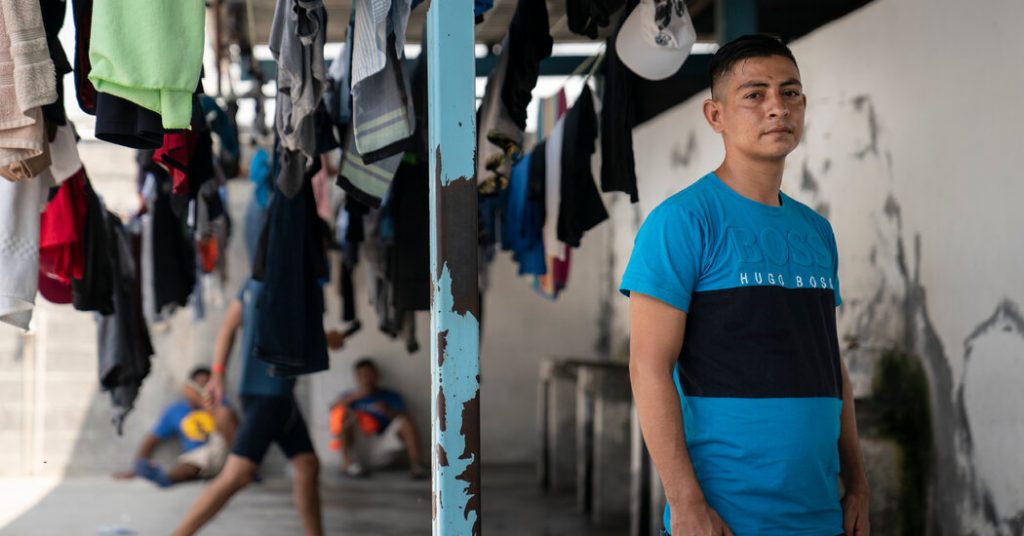The content focuses on the impact of President Biden’s executive order, which effectively closed the U.S.-Mexico border for nearly all asylum seekers, leaving hundreds of migrants stranded in limbo in border cities like Reynosa, McAllen, and Ciudad Juarez. The order, which went into effect at 12:01 a.m. on Wednesday, has led to a decrease in the number of migrants massing at the border as many are now waiting in cities like Monterrey and Mexico City to see what happens. However, those at the border shelters are the ones facing the consequences of being rejected.
Many migrants, like Reison Daniel Peñuela from Venezuela, feel helpless and anxious about the uncertainty of when they will be able to cross into the U.S. to reunite with their families. The new rule under the executive order is a departure from the previous practice of allowing migrants to seek asylum after crossing the border and surrendering to authorities. This change reflects a shift towards a stricter immigration policy akin to that of the Trump administration, aimed at addressing concerns from both parties and the local border communities.
Despite the barriers, some migrants, like Nuvia Baires from El Salvador, have managed to secure asylum interviews through the CBP One mobile app, allowing them to cross the border legally and submit asylum applications. However, for many others, the new rule represents a major setback, as they had risked everything to reach the border only to be told they are not allowed to enter. The situation has led to a sense of helplessness and frustration among migrants who are now facing an uncertain future.
In cities like McAllen and Ciudad Juarez, the impact of the border closure is evident in the reduced number of migrants seeking aid at shelters run by organizations like Catholic Charities and the Good Samaritan shelter. While some migrants, like Luzveisi Mora from Venezuela, feel fortunate to have arrived just before the border closed, others, like Jorge Gomez from Honduras, are left feeling fearful of deportation. The uncertainty surrounding their fate has left many migrants feeling anxious and desperate for a resolution to their situation.
Despite the challenges, Pastor Juan Fierro García of the Good Samaritan shelter in Ciudad Juarez has noticed an increase in migrants attempting to secure CBP One appointments to avoid deportation. The situation highlights the resilience and determination of migrants who are willing to take risks in search of a better future. Overall, the content underscores the complex realities and emotional toll faced by migrants as they navigate the changing dynamics at the U.S.-Mexico border under the new executive order.








